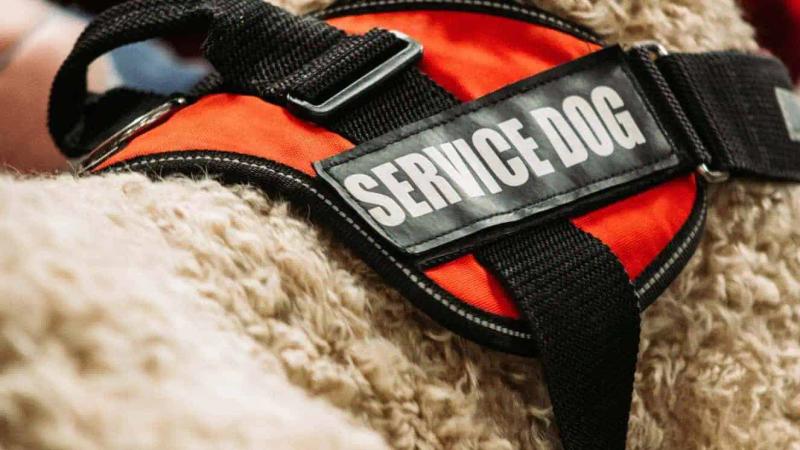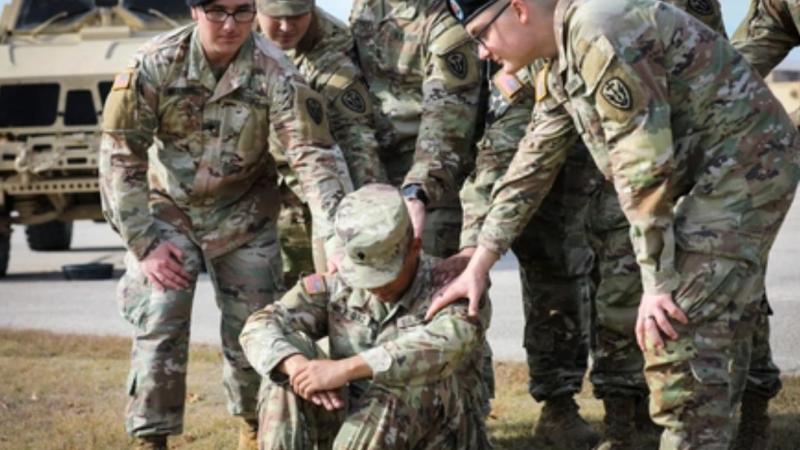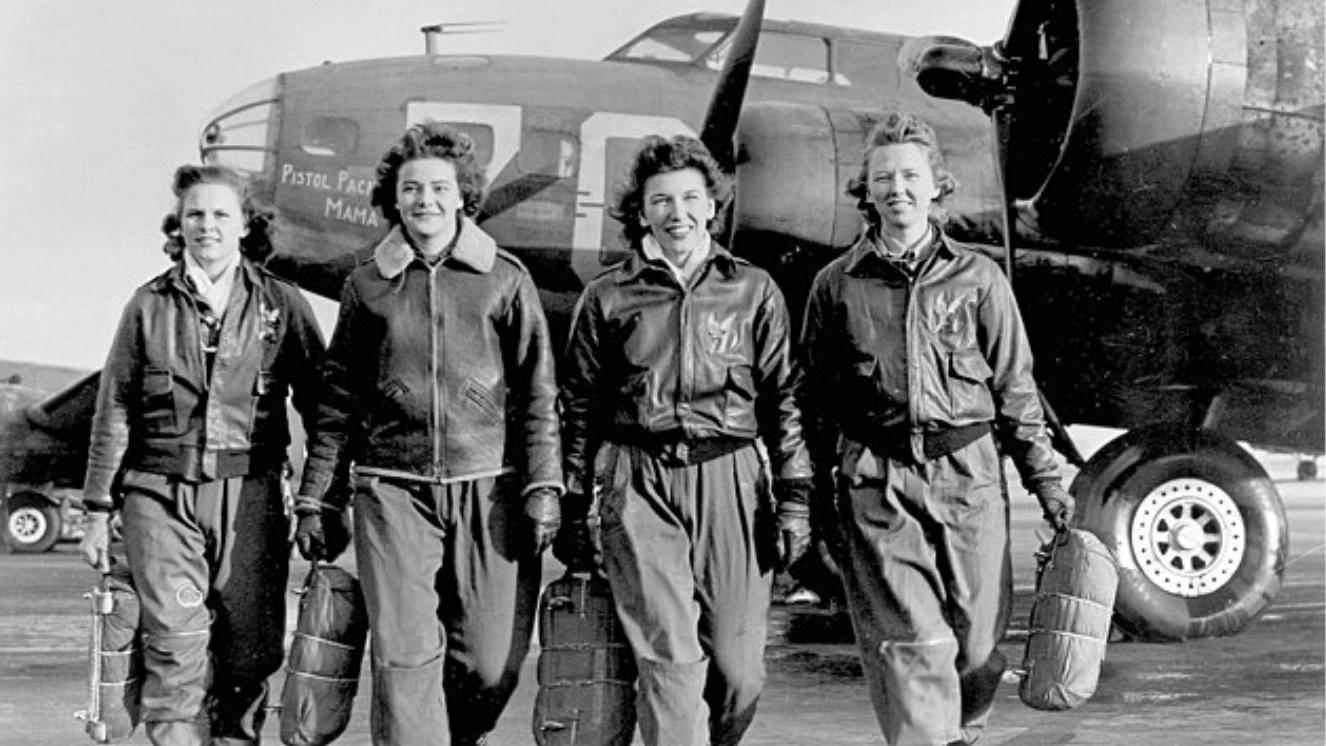THE SERVICE DOGS ASSISTING VETERANS ACT WOULD MAKE ACCESSING K-9S MUCH EASIER

Mental and physical health ailments can be related for military members and some of our nation’s war heroes could use a helping hand. Or in this case, a helping paw, as the Service Dogs Assisting Veterans Act, otherwise known as the SAVES Act, has been reintroduced to help Vets by providing funding to train canine companions.
What Is the Service Dogs Assisting Veterans Act?
The Service Dogs Assisting Veterans Act is back in the House of Representatives after not passing last year.
However, this new version of the bill is catching the eyes of many in the Veteran community for a new reason—its new legislation will also fund grants to train service dogs for Veterans with disabilities like hearing loss, blindness, and paralysis.
If the SAVES Act passes, the VA will give grants to nonprofits that provide service dogs, and support is growing stronger as a similar bill is expected to arrive in the Senate soon.
“This legislation is about giving our heroes the tools they need to thrive, not just survive, when they come home,” said Rep. Morgan Luttrell (R-TX).
Rep. Luttrell is a Navy SEAL Veteran as well as the Chairman of the House Veterans’ Affairs Committee’s subpanel on disability assistance and memorial affairs.

Traumatic Brain Injuries and Service Dogs
Over the past 20 years, more than 450,000 Veterans have been diagnosed with traumatic brain injuries (TBIs), which can lead to unemployment, homelessness, and even suicide.
Service dogs can make a huge difference in improving mental health for Veterans, however, serious cost barriers are preventing many Vets from receiving one.
Training a K9 costs about $50,000, and since nonprofits rely on donations to fund these programs, access to these animals remains limited for most.
The SAVES Act aims to change that by creating a five-year, $50 million grant program through the VA, with funding being directed to nonprofits that provide trained service dogs to disabled Veterans at no cost.
These dogs assist Vets with both visible and invisible disabilities, including PTSD, brain injuries, and military sexual trauma. The legislation simply eliminates the barrier keeping war heroes from accessing the resource.
Bill McCabe from K9s for Warriors, a nonprofit that trains service dogs for Veterans, supports the legislation, emphasizing that it will put more life-changing dogs in the hands of those who need them.
To qualify for funding, nonprofits will need to meet strict accreditation standards to ensure the dogs receive the highest level of training and care.
Strong Support for the SAVES Act
Army Veteran Bob Ouellette and his service dog, Cooper, stood outside the Capitol on Wednesday to support the Service Dogs Assisting Veterans Act.
He's one of the many people and organizations supporting the Service Dogs Assisting Veterans Act and its $10 million annual investment to help the community deal with TBI and PTSD.
“Cooper goes out with me and meets people. He is part of the team. In public, people see the dog first. They respect service dogs and have this warm response. For many Veterans, having this bond gives them back their lives,” said Ouellette.
The benefits of these life-changing dogs is not lost on Ouellette, who has seen them first-hand as a handler, someone who works with the Warrior Canine Connection in Maryland, as well as a father to Rusty, an Army Veteran who medically retired due to PTSD and TBI and has found new purpose through his service dog.
Like many Veterans facing such negative health effects, Rusty began withdrawing from his family and social life.
However, with the help of his service dog, Rusty is attending the University of Maryland and engaging with others around him.
Grants from the SAVES Act would help nonprofits like Warrior Canine Connection cover training costs, veterinarian care, and staffing.
The result would help more Vets receive the support they need while covering the costs of caring for these wonderful animals.
Studies show that Veterans are 66% less likely to deal with PTSD if they have a service dog to help them in their lives.
While individual Vets and politicians are showing their support for the bill, many notable groups, including Disabled American Veterans (DAV) and Semper K9 Assistance Dogs, are just a couple of the 24+ nonprofits endorsing the SAVES Act.

The Service Dogs Assisting Veterans Act Aims to Prevent Suicides
Luttrell and other speakers emphasized that the SAVES Act could reduce Veteran suicide rates and ease the transition to civilian life.
Service dogs provide Veterans don’t just support the community and also help them find a sense of purpose in their lives.
Lawmakers are stressing the nation’s duty to help Vets heal from both visible and invisible wounds of war, and the $50 million investment feels like a small price to pay if it saves the lives of our nation’s heroes.
Throughout the 2025 political cycle, the Service Dogs Assisting Veterans Act is an important one to watch as it could just save your life or the lives of a loved one if it passes.
Suggested reads:
- Pentagon Considers Making More US Military Budget Cuts, Resumes Cutting Personnel
- Service Dogs for Veterans: Where to Find Them, How to Train Them, and MoreService Dogs for Veterans: Where to Find Them, How to Train Them, and MoreNational K9 Veterans Day Honors the Sacrifice & Service of Military Dogs
- Report Reveals That VA Officials Misled Congress, Inflating Budget Shortfall Claims



